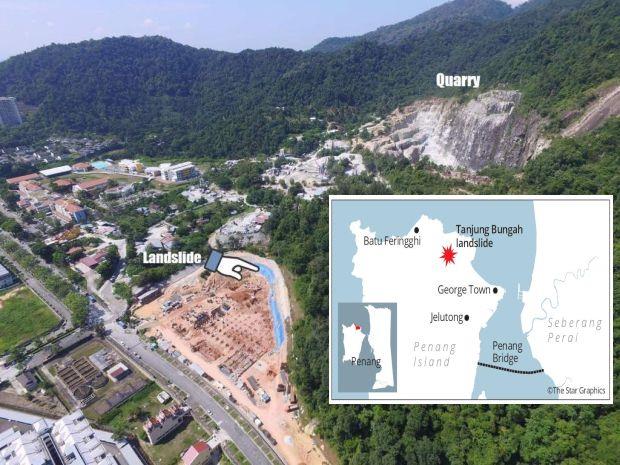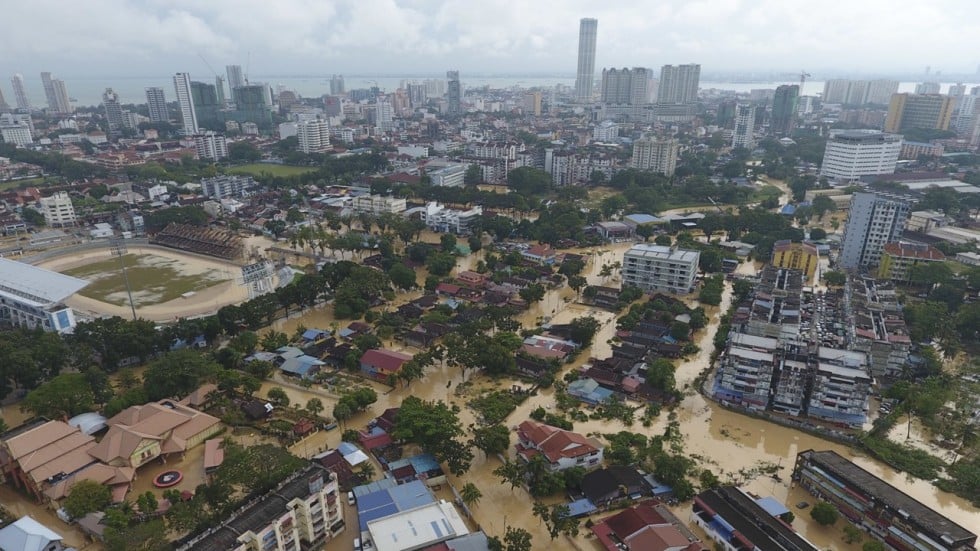I got this from a friend and decided to resend it as it explains in great detail what a Malayu really is. It is time we stopped those who corrupt the original meaning in order to use it to divide Malaysian.
Mahathir should know this since he registered himself as an Indian in Singapore where he studied medicine. Inside him, he knows the real reason why he now considers himself a Malay and refuses to acknowledge his Indian roots. There are opportunists everywhere and UMNO has become the platform for them to satisfy their greed.. It will also be the platform on which they destroy themselves.
The Deputy PM expressed disappointment with the Chinese for not voting UMNO but when you look back at recent history, did he thank the Chinese for their role in getting independence for Malaya? The Chinese, Indians and Malays were supposed to be equal partners as a condition for obtaining Merdeka. Then, the Malays asked for 25 years of “Special Privileges” so that they could catch up with the other races. Along the way, they changed the Constitution and it is now an unquestionable “Malay Right” for perpetuity. Look at your genuine history books (not the ones they distorted) to see if I am telling the truth.. Or go to the newspaper archives in the Straits Times and in London to get to the truth.
Because of this, the UMNOputras own the banks, the plantations, petroleum. The Malays are encouraged to start and own their businesses entirely on their own (100%). The non-Malays start their own businesses but when they get big, 30% must be given to bumiputras. Who are these bumiputras? They are selected UMNOputras ( not ordinary Malays) – those who use politics to get what is not rightfully theirs. They use the law to rob others of their wealth. Yet, they will not give a single share to the ordinary Malays in the streets – it is all theirs to keep. They will not do what they ask the non-Malays to do – sharing their wealth.
Not only that, they rob the ordinary Malays daily with the Water Concessions, the Tolls, etc.
CH
Melayu By a Malay-Syed Imran
You may have already read this article I published more than a year ago, below this is another article written by a “Malay” who I salute, that reinforces what I have said.
I’d like to challenge your article on the origins of the word Melayu.
(I hope you will not be emotional about this email and create an issue about it, but rather treat this as an intellectual argument between two matured individuals. I have presented facts here for you to review, and if you disagree please substantiate it. Since you have come out with a blog to attempt to tell us the origins of the word Melayu, and as a Malay, if you are really and truly keen in your own heritage and roots, I am writing to you with the facts of the origins of the word Melayu, in fact there are many scholars of yesteryear’s, Malays, who will tell you that the only original words in the Malay language are “Tanah” and “Melayu”)
Melayu is derived from the Javanese word Melayu, there are many other words in the Malay vocabulary that actually come from the various Asian languages mostly those of Sanskrit Origin.
The Sanskrit in Malay is derived from the Indian influence of the Majapahit, Srivijaya and other Indian influences in South East Asia. This particular word in Bahasa Malaysia is derived from the word Melayu from Javanese. Javanese was the lingua franca of the people in the region having had its own script, which was actually taken from the Arabic script, the bugis and the rest have dialects close to Javanese.
The Malay language in its romanised context only evolved in the early part of the 20th century.
In Javanese the word Melayu means running away, or a runaway, that is why if you go to Java and ask a Javanese if he is Melayu he will feel very insulted. The word Melayu found on the statue as claimed in your URL; http://www.sabrizain.org/malaya/malays4.htm thus denotes that this person was a Melayu, a “Runaway.”
These people, the runaways whether in Sumatra or in the Malay Peninsula referred to themselves as orangMelayu, it is therefore no coincidence that the word orang is placed before Melayu, people who ran away so to speak.
In the Malay Peninsular, it was gradually accepted as the word to describe the Javanese, the Bugis, the Menang, the Achinese etc. and even the Kelantanese who are actually Yunanese and have their origins in China, because they recognized the fact that at the end of the day they were all Melayu, or Run Aways from their respective homelands the word was accepted by all these communities to describe themselves.
In fact, before the formation of the United Malays National Organisation (UMNO), it is a fact that all the people in the country had referred to themselves as Menang, Achinese, Bugis, Javanese etc. etc. and we all know that the Kelantanese used to treat the other Melayu, that is the Menang, Javanese, the Bugis etc. as foreigners.
Well for that matter, even Mahathir Mohammed was registered as Indian in King Edwards College where he studied medicine.
The Malay therefore very much like the Indians, and later the Chinese are Melayu in the very true sense of the word because they all left their respective countries to come to this location in South East Asia called Malaysia today.
The real natives of the country are the Orang Laut, the Jakun, the Kadazaan, the Iban, the Senoi and the rest, and not the so called Orang Melayu, because these people are actually Javanese, Achinese, Bugis, people from the Mollucas islands, and other parts of neighbouring Indonesia, including those from Cambodia and even China (Yunanese). That explains the word Melayu in various parts of Sumatra too.
The Javanese people in particular were referred to as Java Kontra a term they despised and today in Sumatra they are referred to as Orang Transmigrasi which is more acceptable to the Javanese in Indonesia then the term Melayu.
For Malay citizenship and for permanent residence reasons, the Orang Java, be they Sundanese, Orang Java Barat, Orang Java Tengah or Orang Java Timor, or any other Indonesian for that matter recognises the fact that the day he becomes a Malaysian citizen, he is now an Orang Melayu that is a new word coined by Malaysians of these origins to legitimise their Bumiputraism.
And to become Bumiputra this way, that is by becoming a Melayu, he has to profess the Islamic faith. This privilege is not extended to Dayaks, from Kalimantan, or Christian Filipinos, or for that matter Christians from among the peoples of Sumatra, Java or any other Indonesian Islands.
The irony of all this is the fact that if you look at the real Orang Asli of Malaysia as a whole you’ll find out that the majority of them are not from the Islamic faith, and that is one of the reasons why in Sabah the registration department of the Federal Government legitimised and gave citizenship and permanent residence status to hundreds and thousands of illegal Fillipina immigrants from the Southern part of the Philippines.
I therefore disagree with your attempt to legitimize the term Orang Melayu as a race, it is not and never will be. The so-called Melayu must own up to their own heritage the way the Chinese and Indians in Malaysia proudly do.
And if we are to use this word called Melayu, it should be a term used to refer to all Malaysians except the ethnic Malaysians who are orang Asli.
The term Bumiputera was coined and the Malay placed in that category to legitimize the fact that he is ethnic when he is not.
It is a shame, and in fact a disgrace that they are the only group of people who by this very act, show the world that they are ashamed of their own heritage.
And who else can be so? Only those who run away or are banished from their own lands, for it is only such people who are ashamed of their own heritage.
Even the customs, the traditions, the dressings, the architecture etc. point to the fact that the so calledOrang Melayu of Peninsular Malaysia are actually not one and the same people.
Scroll below and read the next article by Syed Imran a Melayu and an ex Bernama Journalist from Penang
Some time ago I wrote about the Melayu and the origins of the name Melayu, which means runaway.
Today another “Melayu has written” totally unconnected this man, yes he is a man he stands up for the truth has written a similar article.
I am sending both these articles to you for your reading and circulation
All immigrants
Syed Imran, an Arab-Malaysian born in Penang, Malaysia, an ex-Bernama journalist (1971-1998) and former press secretary to the Minister in PM’s Department, posted a great blog days ago, which was translated into English.
Please circulate it and let all Malaysians understand the facts.
*Antara pendatang dan penumpang (English Translation) *
To begin with, I was quite reluctant to comment on the mess created by the statement made by Ahmad bin Ismail, the head of the Bukit Bendera, Pulau Pinang UMNO Division.. Whether he made the statement in reference to Chinese Malaysians is no longer the question, as the issue has spread and has been hotly debated.
If it is not handled carefully and smartly, this issue could make clear water murky, giving opportunity to parties who are keen on seeing this country crash, not to mention falling into the hands of foreigners. In today’s borderless world, international electronic media coverage makes it difficult for any country to hide or deny any given event.
The main issue brought up by Ahmad Ismail revolves around the question of “squatters”, that is, that Chinese Malaysians are squatters in this country. He explained that he was referring to pre-independence days. However, it had hurt the sensitivity of the Chinese Malaysian community.
I don’t know Ahmad Ismail personally, but I was quite close to his late elder brother, Abdul Rahim Ismail, the owner of Rahim Construction Company that was once famous as an “Earth-Prince” (Bumiputra) construction firm in Pulau Pinang. I don’t know what has happened to the company after Abdul Rahim passed away.
Personally, I don’t agree with what Ahmad Ismail said for the following reasons.
To me, nearly 90 percent of Malaysians, especially those in the Peninsula, are immigrants, and all of us are actually squatters in the land of Allah anyways. We are anything but permanent owners, we are merely squatters.
For example, I come from a family that squatted in this blessed land. My paternal grandfather and grandmother migrated from Mecca and Brunei, while my maternal grandmother came from Hadramut, Yaman. We are immigrants and squatters, as are almost everyone else in this country.
As for Ahmad Ismail, he is also an immigrant having descended from an immigrant’s family who squatted in this country. Ahmad Ismail cannot deny the fact that his grandfather and grandmother moved from India to this country in search of a better life in this blessed land.
It is also the case with Prime Minister Abdullah Ahmad Badawi whose maternal grandfather hailed from Guangdong in southern China. In short, Pak Lah’s grandfather, Allahyarhamah Kailan, whose name was Hasson Salleh or Hah Su Chiang, was an immigrant. He moved to Tanah Melayu from Guangdong in the mid-19th century. He stayed in Bayan Lepas as a rubber estate worker, a padi farmer and later became a diamond trader.
Najib Tun Razak, Deputy Prime Minister, is also a descendant of an immigrant Bugis family that came from Sulawesi, Indonesia. Hishammudin Hussein cannot escape the fact that there is Turkish blood running through his veins.
The Malacca Malay Sultanate was founded by an immigrant coming from Sumatra — Parameswara, a prince who practised Hinduism.
A reading of the history of Malay Sultanates would reveal that some of them were founded by Bugis immigrants, while others were of Hadramut and Minangkabau parentage.
Almost all Malays living in this country are from outside Tanah Melayu, but are defined as “Malay Race” by the Federal Constitution. We are “Malay” in definition by the Constitution, that is, we are Muslims; we practise Malay customs and speak the Malay language. Unfortunately, the Malay language itself seems> to have been killed by the Malays in UMNO when they named it the Malaysian language (Bahasa Malaysia).
Therefore, Arabs like Syed Hamid Albar and myself, Achehs like Sanusi Junid, Indians like Kader Sheikh Fadzir and Nor Mohamed Yakcop, Bugises like Najib, Minangs like Rais Yatim, Jawas like Mohamad Rahmat, and others from Madura, Pulau Buyan, Siam, Myanmar, Yunnan (China) and the Philippines are conveniently categorized as Malays.
They are accepted as Malays regardless of whether they speak Malay or otherwise at home like those of us who speak Arabic, the Jawas that speak Jawa, the Minangs that speak Minang, or the Mamak that speak Tamil..
These languages are anything but Malay if we look at it from the perspective of the Federal Constitution, so they should never have been declared Malays. But for the sake of political correctness, all of them are accepted as Malays and “Earth Princes” (bumiputra).
It is grossly unfair to point to the Chinese as immigrants when the Arabs, Indians, Achehs, Minangs, Bataks, Mandailings, Jawas, Maduras, and Bugises are immigrants no less in this country. We cannot deny the fact that most of the Chinese’s grandfathers and
grandmothers migrated to this country in the days of the Malacca Malay Sultanante, some of whom did so during the period of Kedah Sultanate, Terengganu Sultanate and Kelantan Sultanate respectively. After Francis Light wrested Penang from the hands of the sultan of Kedah in 1786, more Chinese had arrived here.
We are all immigrants squatting in this country. Only the Negrito, Jekun, Semang, Jahut, Orang Laut, Orang Darat, Senoi, and other indigenous people groups (like the Kadazandusuns, ibans and bidayuhs) can be correctly considered the original inhabitants of this country.
We must never forget the contributions and sacrifices made by all the races in building our nation in all its aspects, including the economy, social structure, national defense and, most importantly, national unity. We are all taxpayers whether or not we are descended from immigrants or squatters.
Source link
Related Posts:
 |
| Leng Siew Yeap |
Leng Siew Yeap, a Malaysian, a graduate of UMS applied for a scholarship to do a doctorate degree but was refused outright by the local govt.
She was however offered scholarships by University of Edinburgh, London University and Cambridge University. She chose Cambridge University’s Dorothy Hodgkin postgraduate award to study stem cell.
On graduation she accepted the offer from Harvard to study human immunology. She is now working in research for a Shanghai university hospital.
She hassuccessfully helped to create an method/procedure 4 the body to secrete an antibody to fight HIV. She is now married to a Shanghai citizen, living and working in Shanghai. She and her achievements are never mentioned in any Malaysia newspaper.
|
View Full Profile – Shanghai Institute of Immunology
|
|
|
|
|
|

Malaysian public universities’ worstnightmare is beginning, with local private universities rapidly risingand making their presence fe…
It is sad that mistrust among thedifferent races is rising even after 62 years of independence, with thevarious communities having..
https://youtu.be/J7gFNCkMV0o This Merdeka is a meaningless Merdeka for the nation as it entrenches itself into old political mindsets…
Collective responsibility: We need tosacrifice for the good of society so that the next generation can have abetter life. YESTER…
The pump-prime our financial situation, we need a massive investment to revamp and rebuild our education


4.210484
101.975766
 THE Penang government should first study the assessment rates for different categories of properties before imposing a blanket tax on everyone which is unfair, says Citizen Awareness Chant Group (Chant) legal adviser Citizen Awareness Chant Group (Chant) (pic).He said the state should look into the categories of assessment rates like those imposed in developed countries before imposing the rates on ratepayers.
THE Penang government should first study the assessment rates for different categories of properties before imposing a blanket tax on everyone which is unfair, says Citizen Awareness Chant Group (Chant) legal adviser Citizen Awareness Chant Group (Chant) (pic).He said the state should look into the categories of assessment rates like those imposed in developed countries before imposing the rates on ratepayers.




















































































